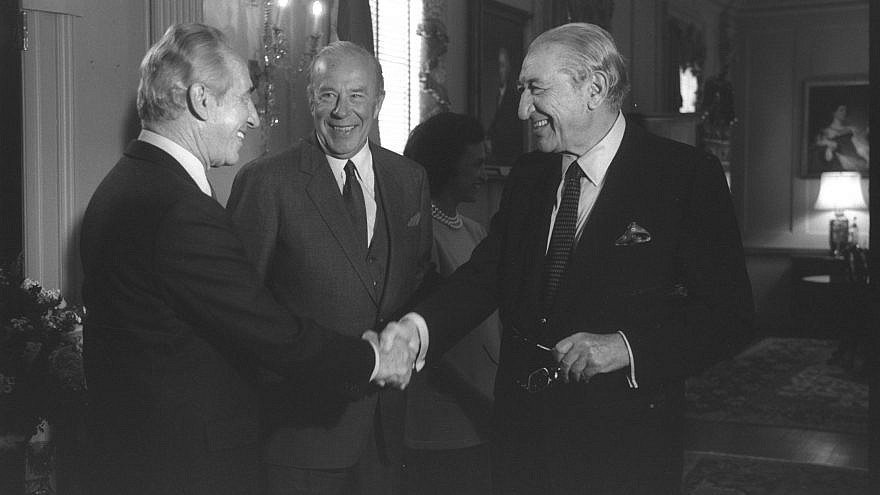Max M. Fisher, born to Russian-Jewish immigrants in 1908 and raised in Salem, Ohio, credited President Dwight D. Eisenhower for leading him to merge his passion for politics and philanthropy.
In 1965, Fisher visited the former president, at which time Eisenhower raised the issue of the 1956 Suez crisis, saying he regretted pressuring Israel to evacuate the Sinai. Fisher’s biographer Peter Golden notes that Eisenhower added, “If I’d had a Jewish advisor working for me, I doubt I would have handled the situation the same way. I would not have forced the Israelis back.”
Fisher, who had already earned his fortune in the oil business, decided to become that adviser. First, he became a force in the Republican Party in his home state of Michigan, and eventually, he advised every GOP president from Richard M. Nixon to George W. Bush. He refused offers of official posts, preferring to work behind the scenes on issues related to Israel and American Jewry.
According to his family, Fisher’s greatest strength was bringing organizations and philanthropists together to work for the same cause—a talent he put to good use as head of the United Jewish Appeal, Council of Jewish Federations, United Israel Appeal and as founding chairman of the Board of Governors of the reconstituted Jewish Agency.
And what differentiated Fisher from lone Jewish advisers of the past was that he brought organized American Jewry with him into politics.
In 1970, when two Soviet Jews who had applied for visas to Israel were sentenced to death in Leningrad, Fisher asked Secretary of State William Rogers and President Nixon to intercede, bringing along the chairmen of the Conference of Presidents of Major American Jewish Organizations and the National Conference on Soviet Jewry. In 1973, during the Yom Kippur War, when Fisher entered the Oval Office and asked Nixon to resupply Israel, he was speaking on behalf of the entire Presidents Conference.
Two years later, President Gerald Ford and Secretary of State Henry Kissinger asked him to help smooth tensions between the administration and Israel over diplomatic ties with Egypt. Fisher was able to fulfill this request because no individual was more trusted by Israeli leaders and the American Jewish community.
In 2005, when Fisher passed away at the age of 96, Prime Minister Ariel Sharon told his cabinet: “To a large degree, it is due to Max Fisher’s activism that approximately 1 million new immigrants came to Israel from Ethiopia and the former Soviet Union in the 1990s.”
However, it was President Shimon Peres who best summed up the impact of Fisher’s work: “He held the most important strategic asset: the relationship between the United States of America and Israel. He made Israel great in the eyes of American leaders.”


























